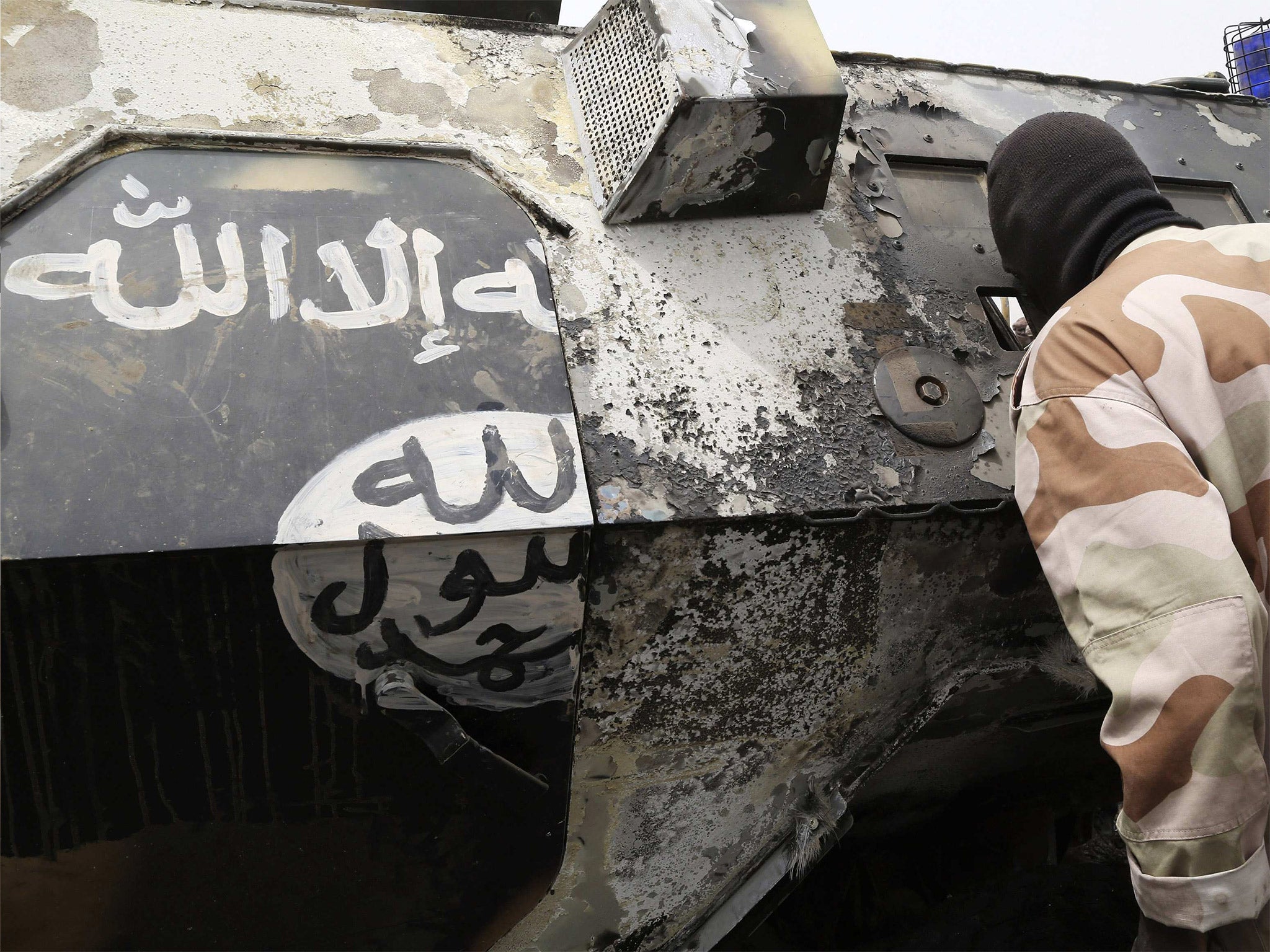Boko Haram fails to unite African allies as Chad and Cameroon wait for Nigerian support
Both Chad and Cameroon are desperate to defeat violent extremists Boko Haram. But they need Nigeria’s support

In their forward base in the town of Gambaru on the border between Nigeria and Cameroon, Chadian soldiers displayed dozens of guns seized from Boko Haram and a burnt-out armoured vehicle painted with black and white Arabic script.
They had recently overrun a Boko Haram camp just inside northern Nigeria, and the battle-hardened soldiers were keen to press home their advantage against the fanatical Islamist group that is attempting to establish its own savage emirate in this part of Africa.
But the order came from on high that instead of pushing deep into Boko Haram territory, they must withdraw again. “We turned back because Nigeria did not authorise us to go any further,” army spokesman Colonel Azem Bermandoa said.
For his soldiers fighting the group that is the common enemy of Nigeria, Chad and Cameroon, it was a frustratingly familiar scenario. Last month Chadian forces fought their way into the Nigerian town of Dikwa, only to be told to leave by Nigeria’s military, which said it was planning air strikes, according to Gen Bermondoa.
Having defeated al-Qaeda in neighbouring Mali two years ago, Chad’s military believes it could finish off Boko Haram alone after notching up victories that have pushed the Nigerian group back from the Cameroonian border.
But with presidential elections due this month – already postponed once because of Boko Haram threats to security – Nigeria is keen to press ahead with its own military campaign against the group, aiming to push it out of major towns before the March 28 ballot.
In an oil-rich country proud to be a major African power, it would be an embarrassment to President Goodluck Jonathan for a smaller nation to tackle Nigeria’s security problems, diplomats say.
As a result, an opportunity to defeat the group that is responsible for slaughtering thousands of Nigerians – and kidnapping or terrorising many more – is in danger of being missed.
Nigeria’s spokesman for operations in the area, Mike Omeri, said cooperation between Chadian and Nigerian forces had brought some major military successes and any issues would be resolved via existing command structures.
The rise of Boko Haram
Show all 20But the Chadians say there have been no joint operations between the two forces. Chad’s offer to join a Nigerian offensive to capture Baga, site of one of Boko Haram’s worst atrocities in January, was rebuffed, Gen Bermandoa said. Officials from Chad, Niger and Cameroon say lack of cooperation from Nigeria has for months hampered efforts to put together a regional taskforce against Boko Haram.
Chad was compelled to take unilateral action in January, under a deal that allows it to pursue terrorists into Nigeria, but apparently not to remain there, after Boko Haram violence started to choke off imports to its economy.
Now with Niger and Cameroon also deploying thousands of troops on their borders to block escape routes for Boko Haram, there is a chance to turn the tide against the group, driving it from the remaining towns it holds, even if it remains a potent rural guerrilla force.
Niger, Cameroon and Chad say Nigeria neglected the uprising in its economically backward northeast, an opposition stronghold. Borno state is home to two percent of Nigeria’s 170 million people.
But Muhammadu Buhari, a former military ruler who is running as the presidential candidate for the opposition All Progressives Congress (APC), has gained popularity with voters desperate for tough policies both on corruption and Boko Haram.
Ernst Hogendoorn, Crisis Group’s Africa deputy programme director, said the government appeared to have engineered the delay in the hope the opposition party would slip up, or that the military could boost President Jonathan’s chances of re-election by defeating the Islamist group.
“Boko Haram has certainly suffered a strategic setback... clearly this improves Goodluck Jonathan’s chances somewhat,” said Mr Hogendoorn. At least, though, their military efforts seem to be safeguarding the neighbouring countries from Boko Haram’s spread.
Cameroon has stepped up its activities since July, when Boko Haram attacked Kolotafa, the hometown of its deputy prime minister, killing dozens and kidnapping his wife. The government has boosted its security forces in northern Cameroon from 700 to around 7,000. “We have to do whatever it takes to make sure the sect does not occupy any town in Cameroon,” said Colonel Joseph Nouma, in charge of Operation Alpha, the mission against Boko Haram.
Another senior Cameroon military figure said they were attempting to choke off Boko Haram’s revenues, including the trade in fuel with Cameroon, Chad and Niger.
“All of this looks to be paying off,” the officer said, with no incursions since mid-February.
Reuters
Subscribe to Independent Premium to bookmark this article
Want to bookmark your favourite articles and stories to read or reference later? Start your Independent Premium subscription today.

Join our commenting forum
Join thought-provoking conversations, follow other Independent readers and see their replies